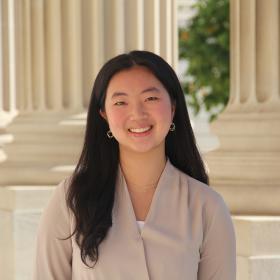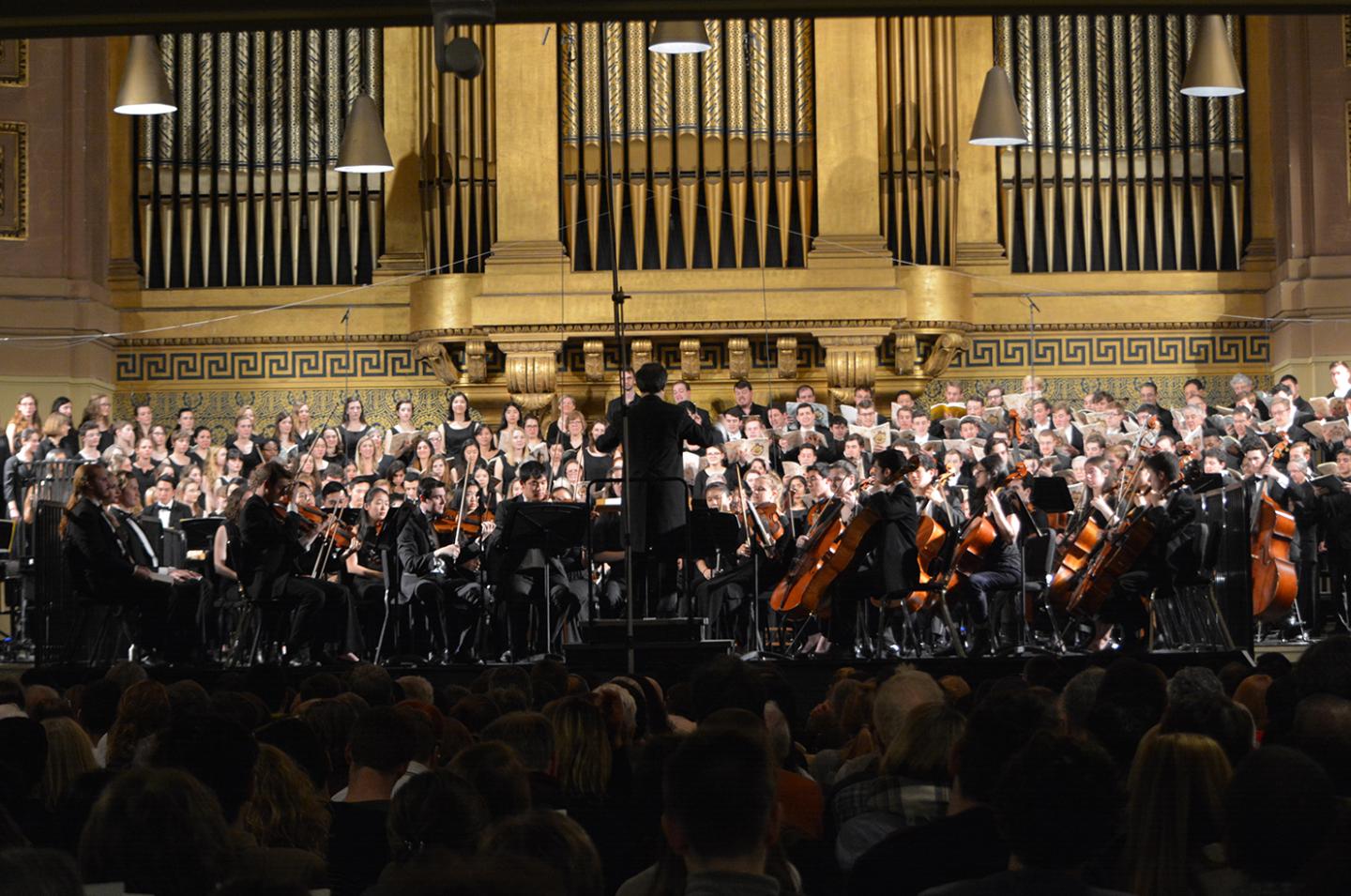



Amanda Wu MC ’28 understands the power of harmony in music, science, and the world.
Wu has been playing the viola since third grade, when she was drawn to the instrument for its unique role bridging gaps in the musical landscape.
“The viola doesn’t often have the melody; instead, it fills a harmony role in the orchestra,” Wu says. “I love the idea of being the intermediary, listening to all the parts and understanding how my voice fits within the larger sound, creating something together. There’s something special about that role that no other instrument really shares.”
Ten years after first picking up the instrument, Wu arrived at Yale and eagerly joined Yale Symphony Orchestra.
“Playing in the Yale Symphony Orchestra is unlike anything I have experienced before,” Wu says. “Many of the people in the orchestra could have gone on to become professional musicians or attended conservatories or music schools, but they chose to come to Yale to continue playing music while also pursuing a rigorous academic curriculum. Being surrounded by that has been incredibly inspiring. Every rehearsal leaves me amazed.”
Thinking Across Disciplines
Wu says it’s clear that everyone at Yale is deeply dedicated to pursuing what they love at the highest level. She is, too, and not just in the concert hall.
When applying to college, Wu knew she enjoyed computer science but couldn’t see herself pursuing a career in pure coding. She also thought she might want to be a doctor, but she didn’t want to set aside her interest in technology—so she found her way to neuroscience.
“I was interested in how computer science intersected with fields like chemistry and computational chemistry, especially in a clinical setting,” Wu says. “I liked the idea of creating technologies for hospitals or elsewhere in the medical field, and neuroscience felt like the perfect intersection of my interests.”
Wu is currently a research assistant in Emilia Favuzzi’s lab at the Wu Tsai Institute, where she helps research how inflammation in the immune system links to brain networks. The experience has opened her eyes to potential career paths beyond pure computer science or medicine.
“I’ve noticed a gap in neuroscience and medicine when it comes to people who specialize in computational work and data analysis,” Wu says. “Many people are passionate about biology and wet lab work, but I’m interested in using my skills in data analysis and tech to benefit research labs or clinics. I want to find ways to efficiently analyze and visualize large amounts of data, especially in ways that current technology doesn’t fully capture. I see myself playing an intermediary role, bringing those different fields together.”
Fostering Global Understanding
Wu also plays that intermediary role in another context—at the negotiating table for Yale Model UN (YMUN). She served as assistant secretary general for delegations at YMUN 51, which welcomed 2,000 delegates from around the world.
This spring, Wu will help bring YMUN to China as a committee director, a leadership role that will require more of a focus on organization and logistics.
“I did Model UN all through high school, and it really shaped how I think about global affairs and solving global challenges,” Wu says. “It was an opportunity to practice leadership—leading committees, organizing conferences—and the values I learned through those experiences still influence how I approach global issues today. Model UN helped me see the world on a grander scale.”
Whether as a viola player, researcher, or global thinker, Wu is working to find harmony—seamlessly blending together different ideas, languages, or sounds in service of a better whole.
